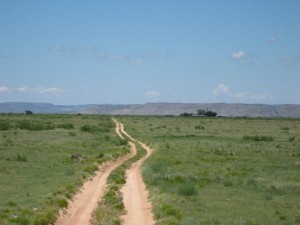The Texas Supreme Court recently considered the duty of a landowner and his employees with regard to people trespassing on the property. The Boerjan v. Rodriguez decision affirmed that a landowner or occupier of land owes only a limited duty not to intentionally injure a trespasser. This case was closely followed by a number of agricultural interest groups in Texas and provides important information for landowners who confront trespassers on their property. [View opinion here.]
Background
In this case, a family (father, mother, and child) from Mexico hired a driver to provide transportation to either Houston or New Orleans. The driver picked the family up in Texas and began driving. When the vehicle reached the Jones Ranch–private property located in Brooks County, Texas–the driver told the family to move from the back seat to the floor of the vehicle. The driver then used a set of keys to open the locked ranch gate.
After being confronted by a ranch employee, the driver sped away. The plaintiffs allege that the ranch employee chased the vehicle at a high rate of speed. The vehicle rolled while still on the ranch and the family was killed. The family’s survivors filed a wrongful death case against the landowners and employee, alleging numerous claims including wrongful death, negligence, and gross negligence.
The trial court found in favor of the landowners and dismissed the plaintiffs’ claims.
The court of appeals held that the trial court erred in granting summary judgment on the wrongful death, negligence, and gross negligence claims. According to the court of appeals, the defendants owed a duty of reasonable care not to injure the family by initiating and maintaining a high speed crash on a caliche road and held that it was foreseeable injury could occur.
The defendants appealed to the Texas Supreme Court, arguing that the appellate court decision imposed a new, higher duty upon landowners to protect trespassers on their property.
Applicable Texas Law
Under Texas law, the level of duty that a landowner or occupier owes to another party depends upon the status of that other party (trespasser, licensee, or invitee). A landowner or occupier’s only duty owed to a trespasser is not to injure him willfully, wantonly, or through gross negligence.
A party may be liable for gross negligence when two elements are present: “(1) viewed objectively from the actor’s standpoint, the act or omission complained of must involve an extreme degree of risk, considering the probability and magnitude of the potential harm to others; and (2) the actor must have actual, subjective awareness of the risk involved, but nevertheless proceed.”
The Supreme Court Decision
The Supreme Court held that Texas law “makes clear that a land occupier owes only a duty to avoid injuring a trespasser willfully, wantonly, or through gross negligence.” Thus, a claim brought for negligence against a landowner cannot succeed. The court specially rejected the court of appeals’ foreseeability analysis in this case–it simply does not apply to a case involving the duty owed to a trespasser. Because a negligence claim cannot succeed on behalf of a trespasser, this claim was dismissed.
With regard to the gross negligence claim, the court held that evidence that the ranch employee may have followed the family’s vehicle does not satisfy the high standard required to impose liability for gross negligence. Following another vehicle simply did not create a likelihood of serious injury to the plaintiffs. Thus, the gross negligence claims were likewise dismissed.
Additionally, the Texas Supreme Court held that the “unlawful acts doctrine,” which provides that a plaintiff may not recover if he or she was engaged in an illegal act at the time of injury, is no longer applicable under Texas law. Thus, the fact that the family was in the country illegally did not, alone, prohibit their right to recover damages in the case. Instead, the comparative fault doctrine applies as it would to any other negligence case.
Why Does This Case Matter?
This case is important for all owners and occupiers of land in Texas. The court of appeals foreseeability analysis could have significantly changed the duty of landowners and put them at greater risk of liability. The Supreme Court decision is favorable for Texas landowners and occupiers and limits their liability in cases involving trespassers injured on their property. As outlined by an amicus curiae brief filed by several agricultural organizations, this case is especially important to protect South Texas landowners facing repeated trespass by illegal immigrants.
There were several articles published discussing this decision. To read more, click here and here.












